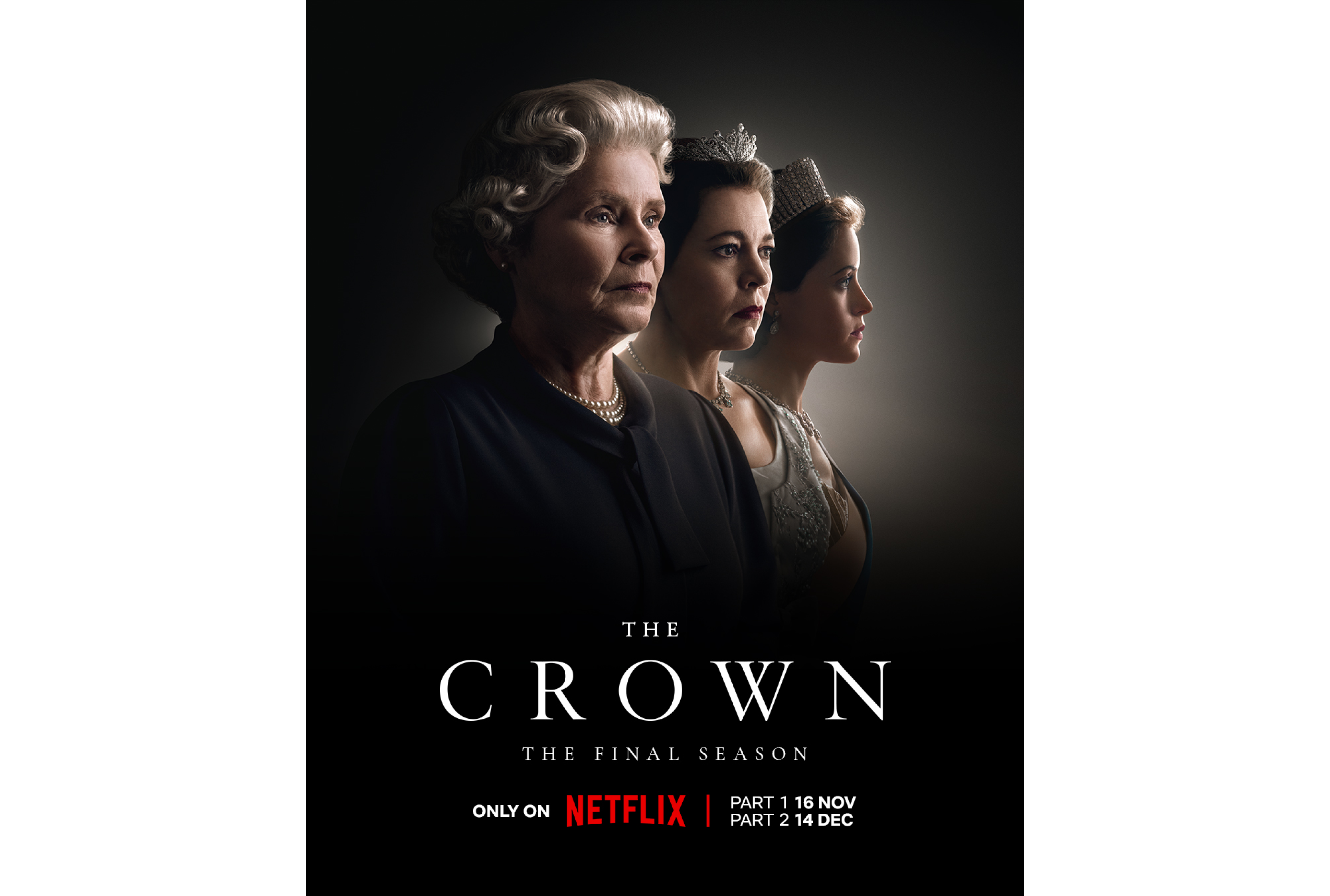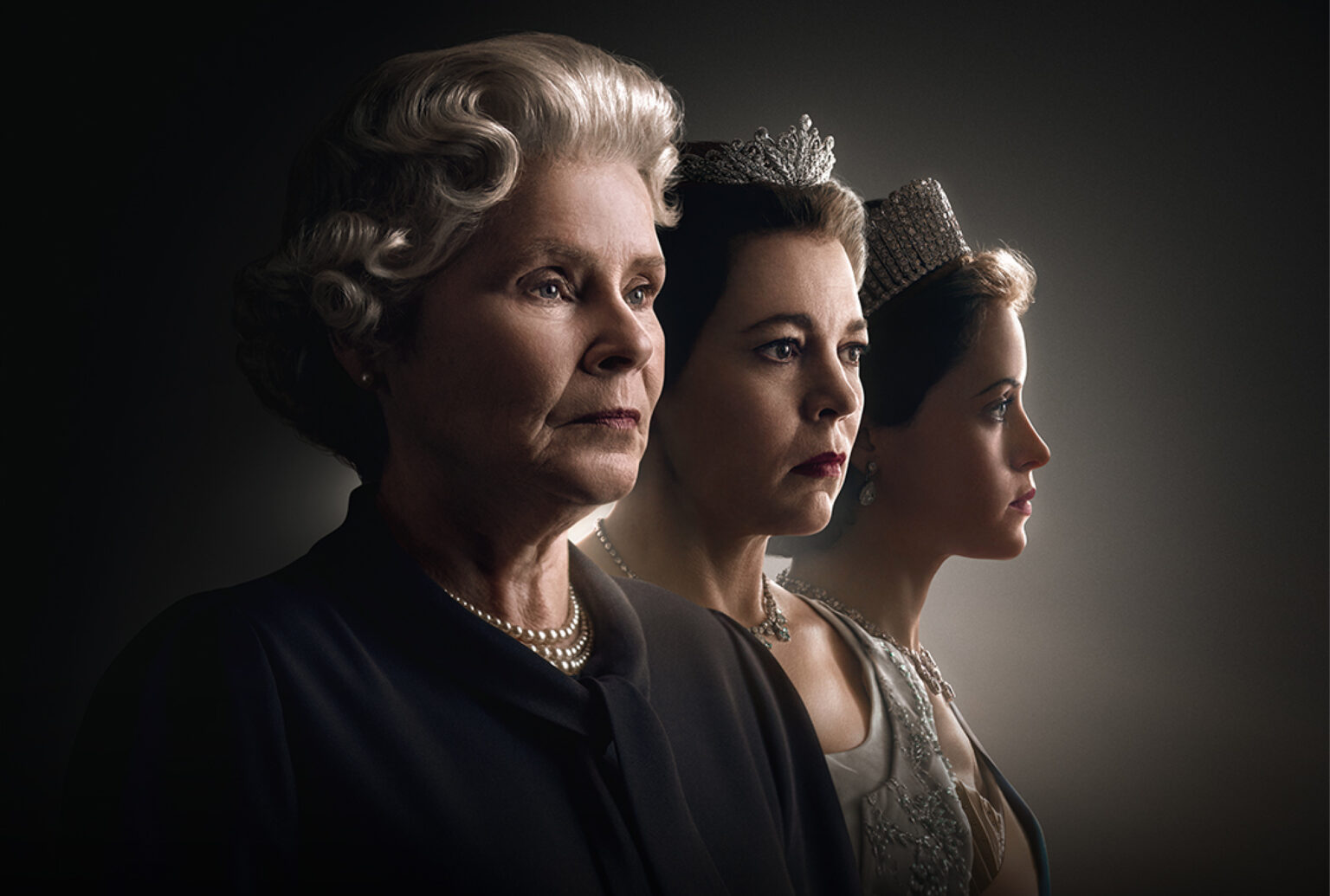The final season of the series that portrays the human side of the British royal family is now on Netflix.
Queen Elizabeth II’s era concluded on September 8, 2022. This date marking the end of the reign of the most influential monarch of the 20th century. As bearer of The Crown, she exemplified gallantry, resilience, and firm leadership – qualities essential for any effective leader. As a woman, she embraced her maternal instincts, extending love and protection to her people and her family. It’s crucial to recognize the human side behind the perceived stoicism imposed by the demands of governance.
There’s a common misconception that those with privileges forfeit the right to express emotions, to reveal their human side. Despite differences in physical appearance and social class, the heart remains a universal constant. However, this doesn’t seem to apply universally, especially for members of the British royal family.
For decades, the image of the British royal family has been tarnished by mostly negative descriptors. Such perceptions, often exaggerated and fueled by prejudice and ignorance, subject even the nobility to stereotypes. Members of the British Royal Family are not devoid of humanity. Their vulnerability and sensitivity as human beings are laid bare in “The Crown,” the acclaimed Netflix series concluding this year. Let me provide details about this magnificent work and discuss its impact on the image of the royals.

Humanizing the crown
On November 4, 2016, the most transparent and objective portrayal of the scandalous and bittersweet life of the British crown was introduced: “The Crown,” a series that premiered its final season on November 16, divided into two parts. It is a conclusion eagerly awaited and impossible to ignore. But what has this series meant for the British crown, for the late Queen Elizabeth II? Has it been a facelift for the family or an unmasking? Has the series subdued public gossip and scrutiny, or has it stirred them even more? Let’s analyze.
Peter Morgan, a screenwriter for film and theater, collaborated with Left Bank Pictures and Netflix to create a television adaptation of the play “The Audience” (2013), also written by Morgan. Both production companies readily greenlit this project. Morgan also drew from his 2006 drama “The Queen,” starring Helen Mirren, to write the series. Over five seasons, the show has presented a more humanized version of the queen, revealing her ongoing struggle between her two personas: Elizabeth, the queen, and Elizabeth, the woman. This conflict led to controversial decisions, where she had to choose between the common good and personal and family interests, making her a target for criticism. Her seemingly impassive character and stern demeanor were trademarks of her personality. Behind that iron mask, however, was a sensitive, vulnerable, and human woman subject to the whims of power and the state, in other words, to the will of others.
Setting the past
“The Crown” spares no effort to recreate the texture of the era, with both light and shadow, always seeking emotional authenticity, even if it means reinterpreting and embellishing the facts slightly. The series not only exposes the truths of the queen but also those of her entire family. Each episode is a portrait of the characters’ emotions: fragility, love, willpower, obsession, frustration, suffocation, and more – feelings that define any human being. This is the brilliance of the series, its ability to depict historically perceived cold, reserved, and stiff characters as fragile, vulnerable, and responsive to the desire for greater simplicity in their lives. Of course, we see not only their light but also their shadow, which interests the public more, as the shadow of the crown is what has given it fame, leading to conspiracies and detractors over the years. But well, don’t we all cast shadows?
Premium Gossip
The series addresses the historical gossip surrounding the Royal Family objectively and without sensationalism, a departure from the subjectivity often found in many documents (books and documentaries) discussing these controversies. Some lack rigor and are frivolous, involving personal feelings and, in some cases, expressing animosity. A prime example is the mother of all royal controversies: Princess Diana, where conventional bias favors the martyrdom of the princess against emotional abuse from Charles and especially the Queen. Here, no side is taken; everyone is both victim and villain. Everyone gives, and everyone loses, everyone has helped, and everyone has betrayed. Everyone resides on both sides of the coin.
Has “The Crown” been a positive or negative influence on the royal family? Is it a whitewashing or an unmasking? I would say it’s an unmasking, but not in a negative sense. For better or worse, lifting the historical secrecy surrounding the family and allowing the windows of Buckingham Palace to clear, revealing the soul of the family for the first time, has made the figure of the royals more vulnerable, sensitive, and human – without diminishing their significance. It has silenced a considerable portion of speculations made over the years about the intimate lives of the royals. Overall, the series has had a positive impact on the family, according to popular surveys in the UK, indicating improved impressions of the main members of the royal household, although, of course, public opinion tends to change quickly.
The weight of a Crown
It is undeniable that the Royal Family’s bad reputation is partly earned, and everyone will have their stance on the matter. However, the crucial point here is that the intransigence of their actions is a result of human reasoning, will, and heightened emotions generated by the overwhelming responsibility of a divine right imposed on them from birth – a right they did not choose. Let’s give the royal family the benefit of the doubt without the need for apology or justification, but with an understanding. No one chooses where to be born, and privilege does not negate the right to act and express oneself as what we are: human.
Regardless of whether you are in favor of the monarchy or not, it is worth giving this series a chance. The rich history of the British crown is worth knowing. “The Crown” is an honest, intimate, and personal portrait – something unprecedented. It addresses the historical controversies and whispered secrets of the Windsors, but from a human perspective. Queen Elizabeth II’s legacy gave us stories that will continue to be discussed for years to come. A woman who, with unwavering will, knew how to lead and fulfill her role as a monarch, with successes and failures, betrayals and sacrifices. But, remember: behind Elizabeth, the Queen, was Elizabeth, the woman.



